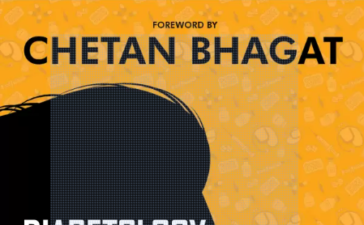Are you searching for the 16 Best Nanotechnology Books to read in 2023? It’s more important than ever to explore nanotechnology through focused reading. Also, by reading books about nanotechnology, you can keep up with the latest stuff. Making sure you know the newest and most accurate information. Nanotechnology mixes different sciences like physics, chemistry, biology, engineering, and materials science. So it’s good to understand how they all work together. Reading about nanotechnology helps you see how these different sciences come together to make really cool new things. Also, we can use Nanotechnology in areas like medicine, electronics, energy, and the environment. And because nanotechnology is all about coming up with new stuff, reading those books can help you think up new ideas too.
The importance of reading Nanotechnology Books to read in 2023 cannot be overstated these days. So, in short, reading about nanotechnology in 2023 is a big deal. It helps you keep learning, understand how different sciences work together, and gives you a chance to be creative. It’s like a start that sets off your creative energy and makes a difference when you think of great, unused things.

1.”Introduction to Nanotechnology” by Charles P. Poole Jr. and Frank J. Owens

The authors do this clearly and accurately, helping us understand what happens on the tiniest scale and how things can totally change when they’re super small. This starting point is really helpful, especially if you’re new to this topic, as it sets you up well for learning more advanced stuff later.
Nanotechnological and its application
An Introduction to Nanotechnology” by Charles P. Poole Jr. and Frank J. Owens may be the first to be introduced as the best nanotechnology books to read in 2023. Owens is a book. Reliable and informative textbook that provides a comprehensive introduction to the fascinating world of nanotechnology. Made to suit everyone, whether you’re a beginner or a little more knowledgeable, this book serves as a trusted guide to the complex world of science and minor engineering. By connecting big ideas with real-life situations, the book helps you see nanotechnology not just as something in the book but as something that shapes our lives.

2. Nanotechnology For Dummies” by Earl Boysen and Nancy C. Muir

From the outset, the book took nanotechnology and broke it down into smaller, more manageable chunks. It’s especially great for beginners, who can find the whole thing a bit overwhelming. The authors talk to you like friends, explaining what nanotechnology is, how it works, and why we should care. They use simple words and meaningful examples, so you won’t feel like nanotechnology is a scary thing. What’s really exciting about this book is that it will be one of the best nanotechnology books to read in 2023 because it shows you the practical side of complex ideas.
3. Nanotechnology: Basic Science and Emerging Technologies” by Mick Wilson and Kamali Kannangara

It also serves as a fundamental guide for the growing field of nanotechnology. Plus, what’s even better is that the book is written in an easy-to-understand style, full of pictures and examples that help explain complex ideas. This makes it ideal for everyone, whether you’re just starting out or know a little about science. Plus, the authors are really good at connecting the dots between complex science and how it’s used in real life.
4.Introduction to Nanoscience and Nanotechnology” by Chris Binns-(16 Best Nanotechnology Books to read in 2023)

At first glance, An Introduction to Nanoscience and Nanotechnology” by Chris Binns is a comprehensive and accessible book that provides readers with an in-depth understanding of the fundamental concepts and applications of nanoscience and technology.
Furthermore, Readers are introduced to a wide variety of nanomaterials, including nanoparticles, nanotubes, and nanowires.
Also, the application of nanotechnology in various fields is the focus of the book.

5. Springer handbook of Nanotechnology

Furthermore, the guide delves into significant concerns related to nanotechnology, encompassing safety, ethics, and social impact. It actively engages in conversations about the conscientious advancement and integration of nanotechnology, highlighting both potential risks and benefits. Moreover, practical instances and case studies are peppered throughout the guide, offering tangible examples of how nanotechnology is reshaping industries and altering everyday life.
6. Nanotechnology :A Gentle Introduction to the Next Big Idea by Mark Rather and Daniel Ratner

The book gently takes us through the tiny world of nanoscale science and engineering. It explains how things work when they are very small and how we can use this knowledge to create new technologies. Mark and Daniel Ratner also show us how nanotechnology is making waves in different fields. But please wait a moment. It also digs into the important questions of what is right and what is good.
7. Nanotechnology: An Introduction to Nanostructuring Techniques by Michael Kohler and Wolfgang Fritzsche

At first, Nanotechnology: An Introduction to Nanomodeling,” written by Michael Köhler and Wolfgang Fritzsche, takes us on an informative journey into the world of nanomodels. Also, Using their expertise, these authors provide a clear and detailed look into the techniques used to shape incredibly tiny materials.
Moreover, the book doesn’t avoid challenges. Firstly, it talks openly about the limits of these techniques, helping us understand what we can and can’t achieve and sparking our curiosity about potential solutions.
8. Nanotechnology: Global strategies, Industry Trends and Applications by Jurgen Schulte

Nanotechnology: Global Strategy, Industry Trends, and Applications” by Jurgen Schulte invites readers on an extensive journey into the global world of nanotechnology. In addition, the book also tells us how countries around the world are using nanotechnology. Furthermore, it explores how different locations approach this cutting-edge field and shows us how they work together and compete internationally. Furthermore, the author guides us expertly through the changes occurring in industries.
9. Nanotechnology in Biology and Medicine: Methods, Devices, and Application by Tuan Vo-Dinh

First, this book represents the powerful link between nanotechnology, biology, and medicine. From advanced imaging methods to precision drug delivery tools, the book reveals the intelligent tools scientists and healthcare professionals use to improve diagnosis, treatment, and overall patient care. Additionally, the book opens up new possibilities by revealing how nanotechnology is shaping biology and medicine. Furthermore, this book provides a clear understanding for the reader.
10. Nanotechnology: Ethics and Society” by Fritz Allhoff, Patrick Lin, and Daniel Moore

First of all, what makes this book special is the way it presents different aspects. It encourages us to think critically and form our own views on the good and bad of nanotechnology. Furthermore, the book makes us think about how to use nanotechnology. It explains how policymakers, scientists, and all of us in society must work together to ensure that nanotechnology helps us all while avoiding harm. Also, a major strength of this book is the way it talks about real-life situations. Finally, “Nanotechnology: Ethics and Society” by Fritz Allhoff, Patrick Lin, and Daniel Moore is an important resource for anyone who wants to understand how science, ethics, and society are linked. See how nanotechnology is changing our lives.
11. Nanotechnology Molecular Speculations on Global Abundance by Eric Drexler

Firstly, the book sparks our imagination with the concept of nanotechnology. Also, It introduces the idea of manipulating tiny atoms and molecules to create new materials and structures, opening up a world of endless potential beyond what we currently know.
Furthermore, Drexler skillfully guides us through his speculations about how nanotechnology could transform our world.
12. Nanotechnology: Health and Environmental Risks” by Jo Anne Shatkin

First, assess toxicity and exposure: The book examines how nanomaterials interact with living organisms. Risk management: second, the book shares ways to manage and reduce the possible hazards associated with nanotechnology. Environmental impact: Additionally, the book discusses how nanotechnology can affect nature, including concerns about small particles entering through air, water, and dirt. It includes things like what happens when nanoparticles mix with natural systems and how they accumulate in living organisms.
13. Nanotechnology: An Introduction to Nanostructuring Techniques” by Michael Köhler

Top-down and bottom-up approaches: The book can discuss the basic concepts of both top-down and bottom-up approaches for creating tiny structures. Top-down methods involve carving or shaping larger materials into smaller ones, while bottom-up methods involve building things step by step, starting from individual atoms or molecules.
Lithography technique: Going further, the book can explore lithography techniques, like photolithography and electron-beam lithography.
Self-assembly and self-organization: The book can also dive into self-assembly and self-organization.
14.
Nanotechnology: Nanomaterials and Nanodevices” takes you on an in-depth journey through the fascinating field of nanotechnology, with a particular focus on nanomaterials and the innovative devices that arise from their creation. This book is clearly written and insightful, making it a must-read for anyone looking to delve into the world of small science and technology. In addition, “Nanotechnology: Nanomaterials and Nanodevices” is not afraid to discuss the ethical and social issues associated with rapid advances in nanotechnology. It encourages you to think about the benefits and challenges, advancing the approach. thoughtful and responsible use of nanomaterials and nanodevices.
Henry Harvin’s provides these courses as well :
- Nanobiotechnology Course
- Nanofabrication and Nanopatterning Techniques for Biomedical Applications Course
15. Nanotechnology: Principles and Applications” by Sulabha K. Kulkarni

In this book, the author helps you explore the basic ideas of nanotechnology. Imagine handling things much smaller than you can see. Like using a special tool to see invisible. In addition, the author uses simple words and examples. She explains that when things get super small, they can do amazing things you wouldn’t expect. Sulabha K. Kulkarni explains everything very clearly and gives you meaningful examples. And shows you how nanotechnology isn’t just science; it’s about making things better for all of us. Whether you are curious about new things or want to learn science.
16. Nanotechnology: Understanding Small Systems” by Ben Rogers, Sumita Pennathur, and Jesse Adams

In this book, they talk about all the little things and how they work. They are different from bigger things. The book is about special things as small as a speck of dust. This book is special because it talks about ideas and how they work. Also, check out Henry Harvin’s Nanoscience and Nanotechnology course to learn more about Docker or for in-depth tutorials. Furthermore, according to India Today and The Tribune, Henry Harvin is ranked #1 among the top 5 development programs in India.
Recommended reads
- 10 Best Books on Six Sigma Green Belt in 2023
- 12 Best Salesforce Books To Read In 2023
- Discover the 20 Best-Selling Books Of All time
Conclusion
In an ever-changing world of science and technology, nanotechnology continues to capture our attention and inspire us. “16 Best Nanotechnology Books to Read in 2023” is like a useful guide for the curious and those who really enjoy this content about nanotechnology. These books are not just words on paper; They are like keys that unlock the secrets of working with microscopic things. If you are new and want an easy start, or if you are already well versed in it, these books have different interpretations. Whether you’re curious, want to find new ways of doing things, or want to make a difference, these books are like sparks of inspiration. So take these books with you on our learning journey and let them enlighten our minds with new thoughts and new dreams.
FAQS
Nanotechnology is the science of working with extremely small particles, atoms, and molecules to create new materials and devices with unique properties.
“Nano” refers to a billionth of a meter, which is incredibly small – about 100,000 times smaller than the width of a human hair.
Nanoparticles are very small particles that can be manipulated and used in a variety of applications, ranging from medicine to electronics.
Nanotechnology is used in things like stain-resistant clothing, scratch-resistant coatings on eyeglasses, and even some sunscreens.
You can read books, take online courses, or explore educational websites to learn more about the fascinating world of nanotechnology. Remember, these are simple answers, and nanotechnology is a vast and evolving field with many complexities.
















